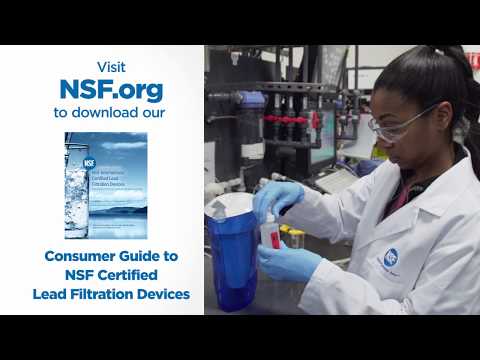TBuying a water filtration system can feel like a gamble. Brands make bold claims — but how do you know if the filter actually does what it says?
That’s where NSF Certification comes in. It’s not just a fancy label — it’s an internationally recognized standard that helps you separate real protection from marketing fluff.
Let’s break down what NSF certification means — how it works, and why it matters when it comes to choosing safer water for your home.
✅ Key Takeaways:
- 🧪 Lab-tested & trusted — NSF-certified filters are independently verified for safety, strength, and performance.
- 🚫 No mystery materials — Certified filters won’t leach harmful chemicals into your drinking water.
- 🔄 Re-tested regularly — Ongoing audits and surprise inspections keep companies honest.
- 🔍 Look for the logo — Only products with the 🔵 NSF badge are the real deal.
- 💡 Worth the investment — Certification costs more, but it gives you peace of mind (and safer water).
🏛️ Who Exactly Is NSF International?
The NSF (short for National Sanitation Foundation) is a globally recognized, independent nonprofit that’s been protecting public health since 1944.
Unlike government agencies, NSF doesn’t pass laws — but it does create the safety benchmarks that everyone else follows. In fact, agencies like the EPA and FDA regularly use NSF’s standards when setting their own regulations.
So what do they actually do?
- ✅ Test & certify water filters, restaurant gear, and even sanitizers
- 🧰 Inspect manufacturing facilities to ensure clean, consistent practices
- 📋 Set safety standards used by regulators across North America and beyond
If your water filter is NSF certified, you’re using something that passed serious scrutiny. These aren’t marketing claims — they’re verified by scientists who know what they’re doing.
🔗 Quality Water Lab is proud to follow and explain NSF standards. For more detail, see the official NSF website.
🧩 What Is ANSI — and What Does It Have to Do with NSF?
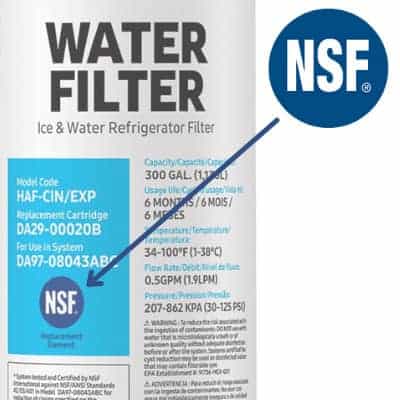
You’ve probably seen products labeled NSF/ANSI Certified — but who (or what) is ANSI?
🔹 ANSI stands for the American National Standards Institute.
🔹 They don’t create standards — they accredit the organizations that do.
🔹 NSF is one of those accredited bodies.
So when you see NSF/ANSI certification, it means the product meets NSF’s science-backed standards and that those standards were vetted and approved by ANSI as nationally recognized.
Together, they create a double layer of trust:
- NSF handles the testing and certification
- ANSI ensures the process is legit and transparent
✅ Translation: If a water filter is NSF/ANSI certified, it’s passed the highest bar for testing, safety, and accuracy.
🏛️ NSF vs. EPA vs. FDA — Who Does What?
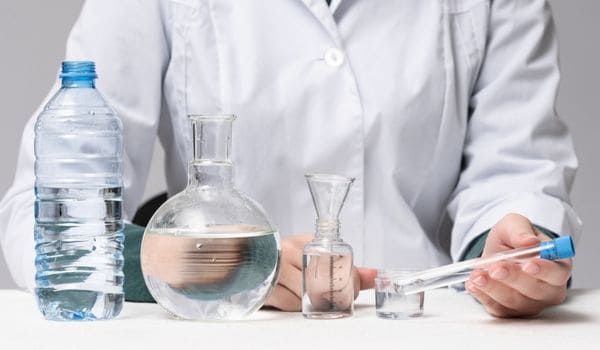
It’s easy to assume that government agencies like the EPA and FDA are the ones testing your water filters… but they’re not.
Let’s break it down:
| 🧪 Organization | 🚨 What They Actually Do |
|---|---|
| NSF International | Independent nonprofit that tests and certifies water filters for safety, structural integrity, and contaminant removal claims. |
| EPA (Environmental Protection Agency) |
Sets legal standards for water quality and contaminant levels — but doesn’t test or certify water filters. |
| FDA (Food & Drug Administration) |
Regulates materials used in water filters (especially for food service), but not their filtration performance. |
👉 Key takeaway: Government agencies may regulate the industry, but NSF is the one doing the hands-on testing.
💡 Good to Know: You might see terms like “FDA-approved” or “EPA compliant” on water filter packaging — but unless it says NSF/ANSI Certified, it likely hasn’t gone through full performance testing.
🧾 What Does NSF Certification Actually Mean?

When you see that blue NSF logo, it’s more than just a label — it’s proof the product has passed some of the toughest independent testing in the industry. But — what exactly does that mean for you?
✅ NSF Certification Guarantees:
NSF certification means the product has been independently tested for safety and performance — and passed.
Here’s what that certification covers:
- 🧪 Material Safety — The filter is made with safe materials that won’t leach harmful chemicals into your water.
- 🧱 Structural Integrity — It’s built to last under normal use without cracking, leaking, or failing.
- 🚰 Verified Contaminant Removal — If the label says it reduces lead, chlorine, or other contaminants, that claim has been tested and proven in a certified lab.
These products don’t just get tested once — they go through periodic reviews to maintain certification. The NSF also audits manufacturing processes for transparency and quality control.
💡 Good to Know:
NSF doesn’t guarantee you’ll love the product — just that it’s safe and does what it says. So while user-friendliness and filter lifespan are still on you to research, safety and performance claims? ✅ Verified.
🧪 NSF Standards That Apply to Water Filters
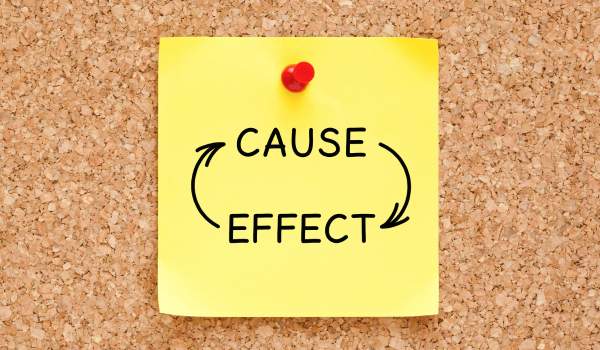
Not all certifications are the same — NSF has multiple standards depending on what the filter is designed to do. Here’s a breakdown of the most common ones:
| 📋 Standard | 🛠️ What It Covers |
|---|---|
| NSF/ANSI 42 | Removes taste, odor, and chlorine — common for carbon filters. |
| NSF/ANSI 53 | Targets health-related contaminants like lead, cysts, and VOCs. |
| NSF/ANSI 55 | Applies to UV light systems. Class A targets bacteria; Class B reduces non-harmful microbes. |
| NSF/ANSI 58 | Specifically for reverse osmosis systems — covers EPA-regulated contaminants. |
💡 Good to Know:
You don’t need all four certifications — just the ones that apply to your filter type and local water issues. Want to check if your filter is certified? Use the NSF certified product search tool.
🔄 Do Companies Have to Maintain Certification?
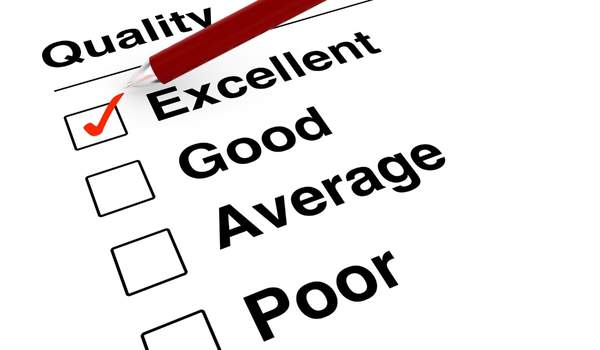
Getting certified is just the beginning — keeping that NSF label means companies have to earn it again and again.
NSF doesn’t hand out lifetime passes. Certified products are:
- 🔍 Re-tested regularly to make sure they still meet safety and performance standards
- 🏭 Subject to unannounced manufacturing facility inspections
- 🧾 Audited yearly to confirm quality control and transparent practices
If something’s off — whether it’s a failed test or changes in how a product is made — that certification can be pulled fast. Companies have to fix the issue before they’re allowed to sell the product again under the NSF label.
💡 Good to Know:
If a product loses its certification, manufacturers are required to stop marketing it as NSF-approved. That’s one reason the blue NSF logo still holds weight — it can’t be bought, and it definitely isn’t forever.
🏆 Why Do Manufacturers Choose NSF Certification?
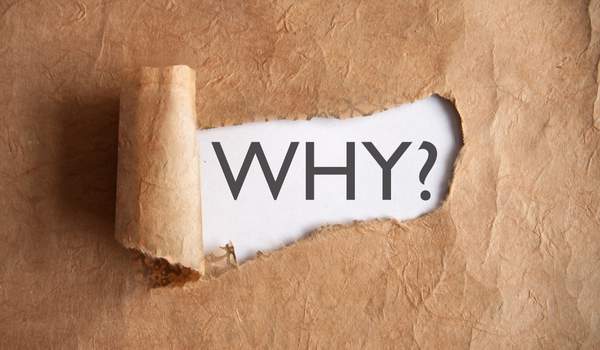
NSF certification isn’t cheap — so why do companies go out of their way to earn it?
Because the benefits go way beyond bragging rights:
- ✅ Builds Consumer Trust — Customers don’t always know what makes a water filter safe, but they know to trust the NSF label.
- 🛡 Manages Legal & Safety Risk — Certification shows the product meets strict health standards, reducing liability.
- 🏁 Competitive Edge — In a crowded market, NSF approval sets a product apart — especially when competing with low-cost imports or lesser-known brands.
- 💬 Signals Transparency — Certification tells consumers the brand is willing to be held accountable for its claims.
💡 Good to Know:
Some small brands skip NSF certification due to cost — and that doesn’t always mean their products are unsafe. But NSF-certified filters go the extra mile to prove it with third-party testing, transparent results, and ongoing accountability.
🧪 NSF Water Filter Standards: What Do the Numbers Mean?

NSF-certified filters usually include numbers like 42, 53, or 58 — but don’t let them intimidate you. They simply tell you what the filter’s been tested for.
- 42 handles taste and odor issues (like chlorine).
- 53 tackles health-based contaminants like lead.
- 55 is for UV systems.
- 58 covers reverse osmosis filters.
💡 Good to Know: You don’t need to memorize the numbers. Just check the packaging or head to the NSF site to confirm your filter meets the standards that matter to you.
🔍 Beware of Imitators

⚠️ Just Because It Says
Some companies use clever wording like “tested to NSF standards” — but that’s not the same as being NSF certified. It could mean they used a different lab, or just modeled their product after certified ones. Unless that official blue NSF logo is on the label (and in the searchable NSF product database), there’s no guarantee it passed any testing.
❓ Can You Trust Non-NSF Filters?
Sometimes — but it depends.
There are other legit third-party labs out there, and some manufacturers simply can’t afford NSF’s high certification fees. But here’s the key:
If they won’t share their test results, product sources, or contaminant data, that’s a red flag. Transparency matters.
💡 Good to Know:
Look for brands that publish clear lab reports and explain what standards they meet — even if they’re not NSF-certified. Reputable companies will always show their work.
💰 Is NSF Certification Worth the Money?

NSF-certified products aren’t always the cheapest — and that’s kind of the point. The testing is independent, the standards are high, and manufacturers pay a premium to prove their products meet them.
But what you get in return is real peace of mind.
You’re not guessing whether a filter is safe or effective — you know it’s been put through the wringer to earn that label.
✅ Why It’s Often Worth Paying More:
- 🧪 Independent Testing – You’re not just trusting marketing claims — they’re verified.
- 🏷️ Label Confidence – When a product says “reduces lead,” you know it actually does.
- 🛠️ Better Manufacturing Oversight – Certified products are made under stricter quality control.
- 🧾 Long-Term Savings – Filters that actually work protect your health and your plumbing.
💡 Good to Know:
Non-certified filters can sometimes perform well, but the burden of proof is on you. Without a trusted third party like NSF or ANSI backing the product, you’re taking a gamble — especially with your health.
✅ Final Thoughts
NSF certification isn’t just a fancy label — it’s a sign that a water filter has been independently tested and verified for safety, performance, and quality.
With so many options out there, seeing that little blue NSF mark can help you cut through the noise and choose something that actually does what it claims.
When it comes to something as important as your drinking water, certified beats uncertain — every time.
 138 people found this helpful. Was this guide helpful to you?
138 people found this helpful. Was this guide helpful to you? 
